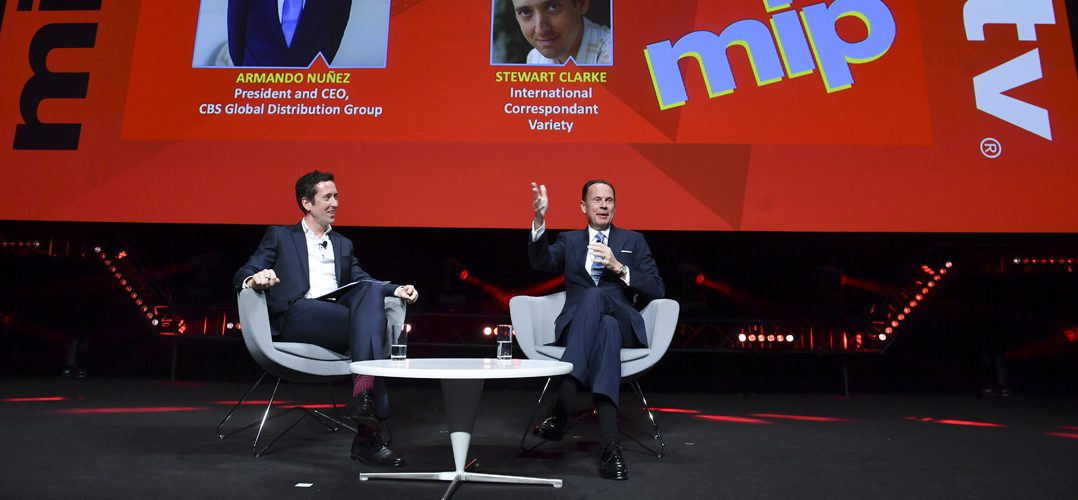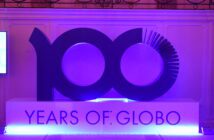The Game Changers Keynote series featured some of the best and brightest minds currently working in the increasingly interlinked worlds of TV, gaming and ecological activism. The resulting conversations covered a range of hot-button topics including the changes sweeping through the TV and media industries, ways in which we can all change and help to save the planet, and how to make content for the next generation of TV viewers.
Awesomeness co-heads Rebecca Glashow and Shelly Zimmerman believe that the underlying reason for the success of the company is mainly down to a combination of authenticity and relevance. “We work with an amazing generation who are like no other in history because they’ve grown up in a world where everyone has mobile devices,” Glashow said. “Plus, we are so passionate about Generation V and what we produce,” Zimmerman said. “And that means that we look for people who speak authentically, plus we dig deep to find the really great stories.”
“Our talents display a huge level of commitment and are really connected to their audience, a profound two-way connection that comes from Awesomeness’ early days on YouTube. The reactions to what you’re doing are immediate,” Glashow said. “It’s still the entertainment business but the approach has to be very pure. We don’t talk at our audience, we discuss things with them.”
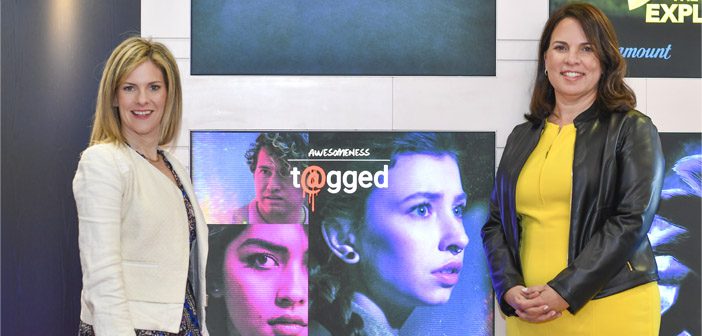
Coming at the TV industry’s current situation from a very different angle, Armando Nunez, president and CEO for the CBS Global Distribution Group, delivered a keynote and received the Variety International Achievement in Television Award, an acknowledgement of his outstanding contribution to building a dynamic global marketplace for television content. Since 1999, Nunez has overseen content licensing of CBS-owned programming to domestic and international distribution partners across all platforms including cable, broadcast and streaming services, and has learned how to keep pace with a fast-changing industry, and to embrace new SVOD platforms. “We’ve produced and licensed content to a number of different broadcast and cable outlets in the US and, with Netflix and Amazon and Hulu and others — my attitude is the more the merrier,” he said.
Arguably the biggest challenge facing Nunez is how to manage the company’s direct to consumer/streaming business —currently limited to the US, Canada and Australia. He said it is unlikely that CBS will just “flick the switch” and launch a global streaming business like rival Disney. Instead, he said “we will pick and choose where it makes sense to launch direct to consumer. And when we do we have the luxury of going with either the CBS All Access brand or Showtime. It’s important to remember that the traditional distribution business is still strong.”
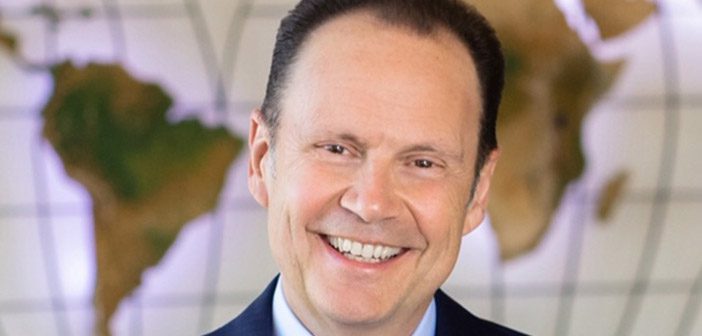
Anders Jensen, CEO of Nordic Entertainment Group (NENT), the owner of Scandinavian streaming platform Viaplay, used his MIPTV Keynote to tell delegates that investment in local content will be the company’s key differentiator from global rivals like Netflix. “There is no substitute for local scripted content,” he said. “It’s the most credible way for us to stay ahead of companies like Netflix. Currently we are producing around 20 Viaplay originals a year, but I think we need to get to 40 a year — almost one a week.” Jenson was also very clear that the future of TV will be about streaming. “There are 12.3 million homes in the Nordics and streaming penetration is already at 45%. Viaplay is at about 10.5% penetration, so there’s a lot of room for us to grow,” he said.
But some things never change, writing great stories being one of them. “Young writers seeking to progress in TV should study the craft and write with a passionate agenda,” said showrunner Ilene Chaiken — something she has done during her own career. Series like The L Word, Empire and The Handmaid’s Tale have challenged orthodox opinions about the stories and characters audiences want to see on TV. In a wide-ranging discussion, she gave delegates intriguing insights into the function of writers’ rooms: “A great experience — a collective effort where the end result is greater than the sum of the parts.”
Initially on The L Word, she was advised to hire a team of seasoned writers — irrespective of their personal experience of lesbianism. “But I quickly learned that the only people who could really write stories about lesbians were women who’d lived that experience,” Chaiken said. She took this learning into showrunning Fox’s hit franchise Empire, a series focused on an African American family. “My responsibility was to listen, then assemble a staff capable of telling their stories,” she said.
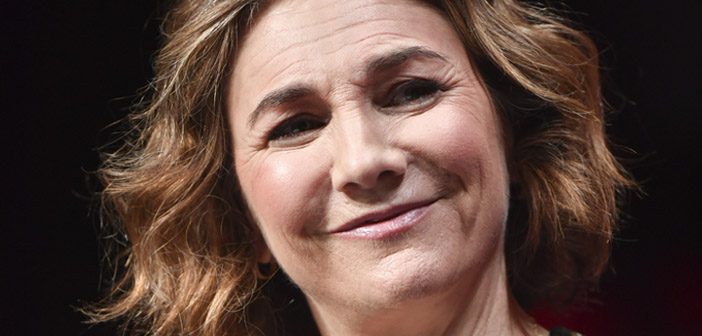
The MIPFormats Keynote by Jeff Apploff, president and CEO of Apploff Entertainment, covered another kind of creative process, one that has enabled him to deliver hit shows including Don’t Forget The Lyrics and Beat Shazam. “It all starts with me asking what people are doing every day that I could blow up into a game show. Beat Shazam really started with the fact that people love listening to music and there are 350 million of them using Shazam to work out what they just heard,” Apploff said. Great shows, he added, all have a secret sauce — a mechanic — that catches the audience’s interest. “But to get a show on air there are no short cuts — you really have to try and poke holes in it. You can’t make believe problems don’t exist, you have to flush them out,” he added.
Coming to the thorny question of content consumption from a thoroughly up-to-date perspective, Michael Aragon, senior vice-president of content at global multiplayer streaming platform Twitch, is responsible for feeding relevant live and on-demand interactive content to millions of gaming enthusiasts, people who’ve the mostly shunned linear TV. “Content owners seeking how future audiences might watch their shows could learn much from today’s experiences at Twitch,” he said. Aragon was at MIPTV to explain the burgeoning relationship with TV content owners and creators and how the share of non-gaming content on the platform, including TV classics like Power Rangers, Pokemon and Doctor Who, is currently 10% and growing.
“We started the non-gaming element only 18 months ago and it is something we’re proud of because we’re learning more about the people tuning in,” Aragon said. “Twitch can make TV re-runs feel live with Extensions, the virtual content that fans can superimpose on video content. Some TV media partners have anxiety about such overlays, because they are afraid about what that might do to the expensive content they’ve produced. But, he added, with such interaction comes the kind of viewing engagement not seen before. We offer a multiplayer experience, where viewers are integral to shaping the entertainment, and that’s here to stay. For the younger audience, lean-back is not going to be as important as it was 20 years ago.”
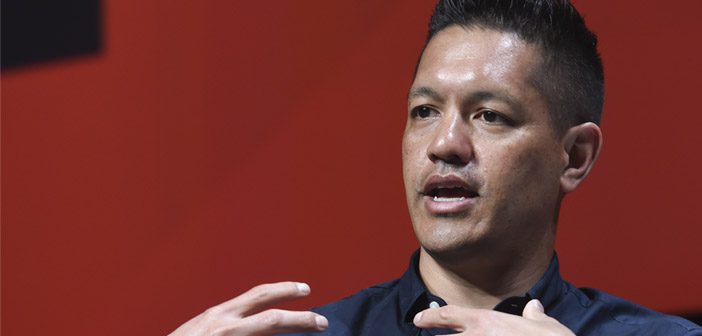
But none of this matters compared to the importance of taking action to halt the planet’s slide into plastic toxicity. Swimmer and environmental activist Ben Lecomte gave his MIPTV Keynote audience an exclusive first look at The Swim — a film following his epic swim across the Pacific Ocean. “I swim where attention needs to be brought,” he said. “Right now, that is our oceans.” His mission is to raise awareness of ocean health, and in particular, the amount of plastics humankind has dumped into the natural world.
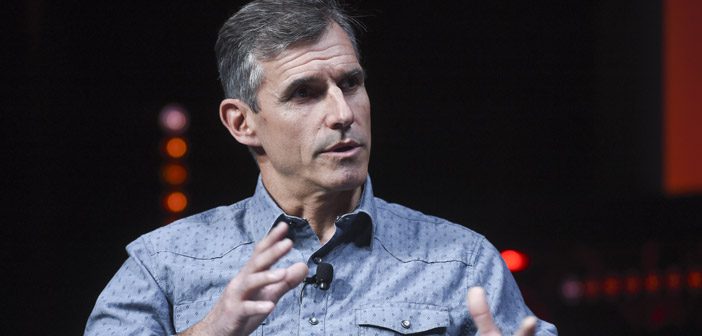
“We were all alarmed,” he said. “We found a lot of plastic near the Japanese coast, sure, but then 1,000 miles away, days and days out, we collected two or three pieces of microplastic every minute. It’s omnipresent.” The challenge for the filming team was significant. It included uploading footage from the middle of the Pacific for the YouTube episodes, Facebook posts and web content, and protecting expensive equipment from corrosion, as well as living on a small boat for six months.

